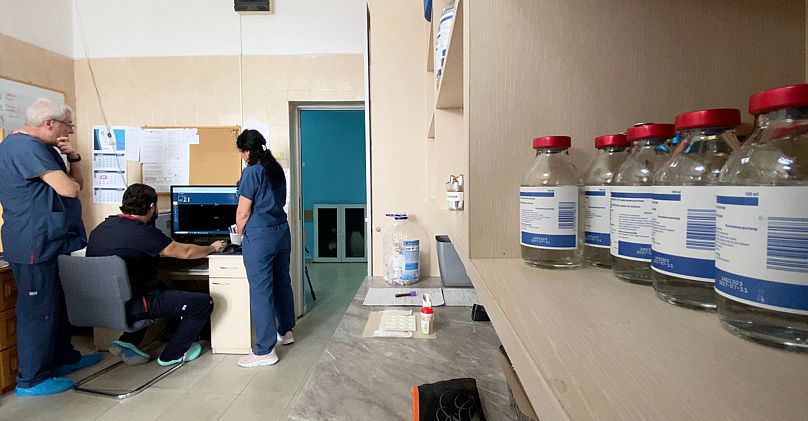Where Are the Nurses? Aging Europe Faces a Critical Health Workforce Crisis
A substancial number of EU nurses is approaching retirement age, with limited younger replacements entering the profession. Nurses often face challenging working conditions, including long hours, high patient-to-staff rations, low salaries and emotional strain. Many nurses report burnout, impacting retention rates and discouraging vocation in young people.
Competition among EU countries to attract and retain medical professionals further exacerbate the situation. Aware of the problem, the EU is developing a 3-year initiativeto launch new, better training programmes to attract young students to the nursing field.
Bulgaria is a clear example of the current challenges. In a decade, the country has lost over 10% of its nurses, including many leaving for other EU Member States in search for better salaries and working conditions. Take for instance Elza. She is one of the 144 nurses at the Blagoevgrad State Hospital in southwest Bulgaria. Elza works at the Orthopedics ward.
Despite improvements last year, the hospital operates below the ratio of at least 2 nurses per doctor, widely considered by health professionals as the minimum standard for good practice.
"My aspiration has always been to serve as a nurse, even though numerous alternative paths were available for my education," explains Elza. "However, I simply wished to pursue nursing. Both my mother and children share the same profession; it suits me well." She continues, "(Nonetheless), our compensation is minimal, compelling us to take up jobs at two different locations. They grant me some time off so I can be with my loved ones. While we aren’t required to remain in the ward around-the-clock, long working hours tire us out significantly. This exhaustion deters younger nurses from joining, leading them to gradually leave their posts over time.”
Similar to numerous other EU nurses, Elza struggles to voice concerns regarding this matter. She worries about potential repercussions at work. However, she cannot entirely conceal the significant personal cost that her cherished profession frequently entails.
Maybe our efforts aren't recognized in Bulgaria," she remarks. "There are numerous instances where things seem unfair. We often feel undervalued since we dedicate long days—working 12-hour shifts—and sacrifice vacations and time with family during weeknights and weekends. Ultimately, this boils down to money.
Bulgaria needs approximately 17,000 more nurses for its healthcare system to function effectively. How can this issue be addressed or improved?
Milka Vassileva is the President of the 32,000 member-strong Bulgarian Association of Healthcare Professionals. She has been working as a clinical nurse for 43 years.
She asserts that nursing work is significant and emphasizes that this contribution needs to be acknowledged appropriately.
As per our calculations, for nurses to stay in Bulgaria, their initial salary must be at least triple the nation’s lowest wage, according to Milka Vassileva. "What actions can the European Commission take? There have been numerous statements and various financial reports directed toward member states. The EU's half-yearly assessment of Bulgaria clearly emphasizes the necessity to boost healthcare spending, ensuring that nurses get the chance to utilize their training effectively—not just within hospitals but also in ambulatory services where such conditions presently do not prevail."
Experts agree that, other than funding, any strategy at EU level should also include improvements in aspects like planning, recruitment, training, working conditions, and professional development.







